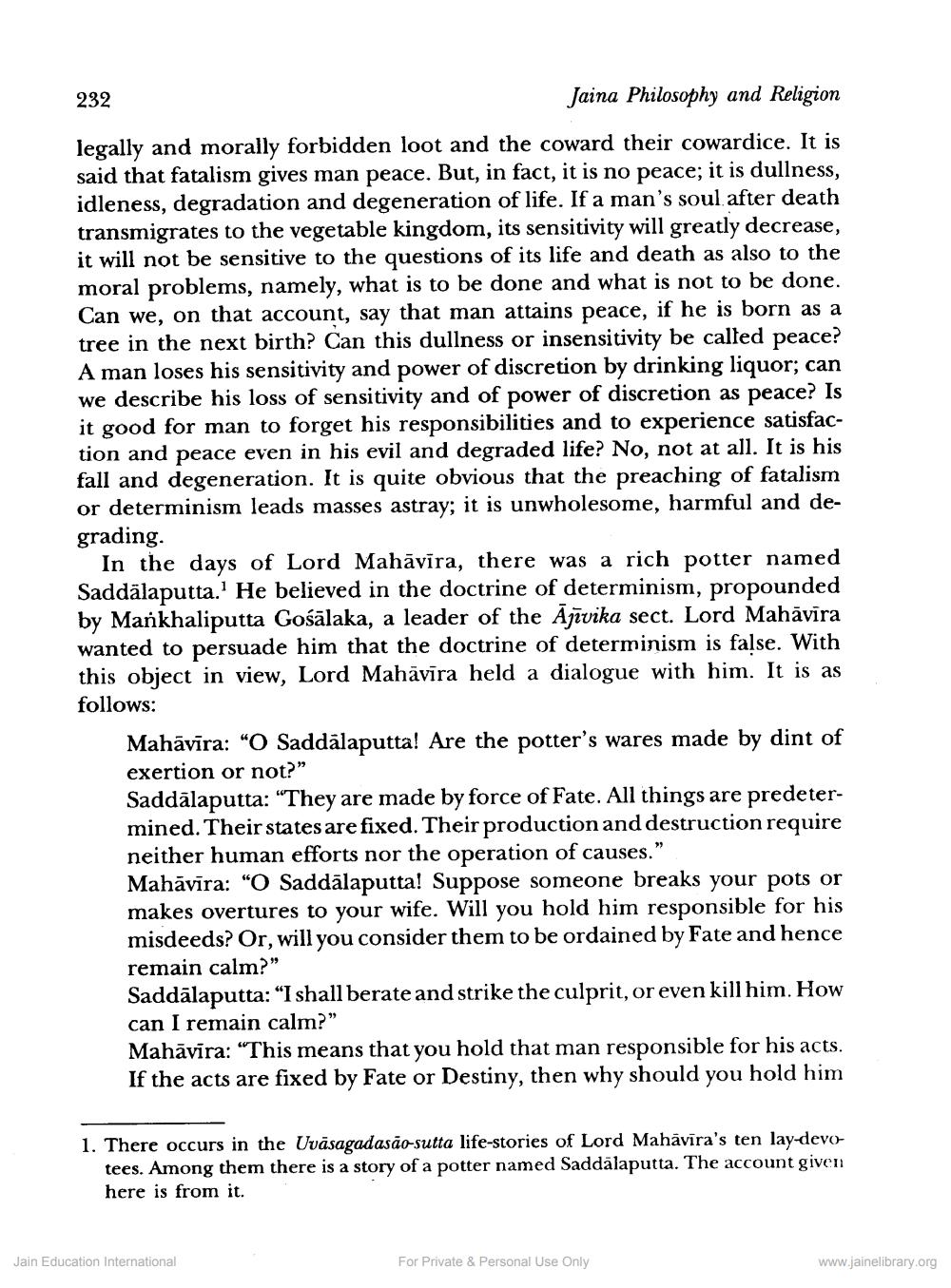________________
232
Jaina Philosophy and Religion
legally and morally forbidden loot and the coward their cowardice. It is said that fatalism gives man peace. But, in fact, it is no peace; it is dullness, idleness, degradation and degeneration of life. If a man's soul after death transmigrates to the vegetable kingdom, its sensitivity will greatly decrease, it will not be sensitive to the questions of its life and death as also to the moral problems, namely, what is to be done and what is not to be done. Can we, on that account, say that man attains peace, if he is born as a tree in the next birth? Can this dullness or insensitivity be called peace? A man loses his sensitivity and power of discretion by drinking liquor; can we describe his loss of sensitivity and of power of discretion as peace? Is it good for man to forget his responsibilities and to experience satisfaction and peace even in his evil and degraded life? No, not at all. It is his fall and degeneration. It is quite obvious that the preaching of fatalism or determinism leads masses astray; it is unwholesome, harmful and degrading.
In the days of Lord Mahāvīra, there was a rich potter named Saddälaputta. He believed in the doctrine of determinism, propounded by Mankhaliputta Gośālaka, a leader of the Asīvika sect. Lord Mahāvīra wanted to persuade him that the doctrine of determinism is false. With this object in view, Lord Mahāvīra held a dialogue with him. It is as follows:
Mahāvīra: “O Saddälaputta! Are the potter's wares made by dint of exertion or not?" Saddālaputta: “They are made by force of Fate. All things are predetermined. Their states are fixed. Their production and destruction require neither human efforts nor the operation of causes." Mahāvīra: “O Saddälaputta! Suppose someone breaks your pots or makes overtures to your wife. Will you hold him responsible for his misdeeds? Or, will you consider them to be ordained by Fate and hence remain calm?” Saddālaputta: "I shall berate and strike the culprit, or even kill him. How can I remain calm?" Mahāvīra: "This means that you hold that man responsible for his acts. If the acts are fixed by Fate or Destiny, then why should you hold him
1. There occurs in the Uvāsagadasão sutta life-stories of Lord Mahāvīra's ten lay-devo
tees. Among them there is a story of a potter named Saddälaputta. The account given here is from it.
Jain Education International
For Private & Personal Use Only
www.jainelibrary.org




